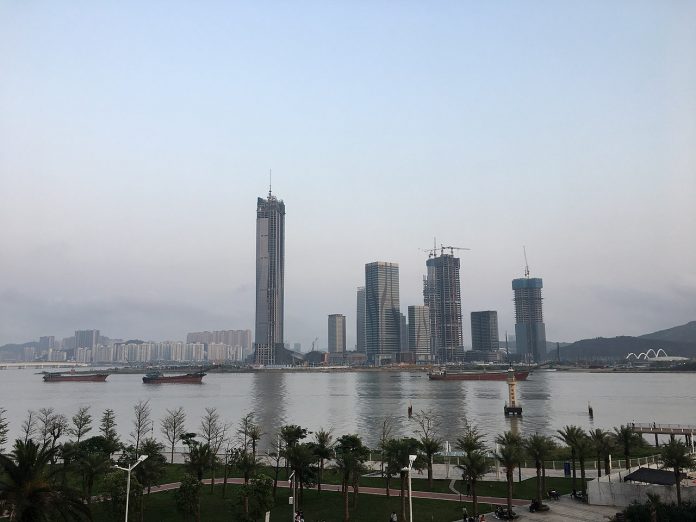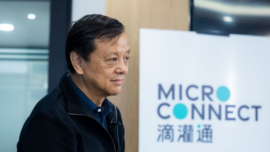Macau is going to expand to the neighbouring Chinese island of Hengqin, with an eye on the reinforcement of ties with the Portuguese-speaking countries, with technological investment projects worth some MOP400 billion (US$50 billion) already on the table, Chief Executive Ho Iat Seng announced today (Tuesday).
The Chief Executive told legislators in the Legislative Assembly (AL) today that there are integrated technological development projects involving MOP400 billion ready to invest in the neighbouring island, which the authorities want to transform in an internationalization center with an important focus on business with Portuguese-speaking countries.
These projects by local companies were described by Ho Iat Seng as essential to diversify the economy and boost the growth of Macau’s Gross Domestic Product (GDP), a “small land” of about 30 square kilometers that eyes this expansion sponsored’ by the President Chinese, Xi Jinping, as an opportunity to respond to Beijing’s demand for national integration and to strengthen its role as a trading platform between China and Lusophone countries.
Currently, Hengqin already houses the University of Macau on a 1 square kilometer landplot that was handed over for 40 years. In another 4.5 square kilometers area, Macau companies will be installed on the island that belongs to the neighbouring city of Zhuhai, in Guangdong province.
The new government policies presented by the new CE state that “the design and subsequent execution of the work on the light rail line connecting the border post to Hengqin will begin as soon as possible”, over which Macau has jurisdiction since March 18, important factors to enhance the new challenge proposed to Macau.
In an attempt to attract companies to the Guangdong-Macau Cooperation Industrial Park, the authorities of the territory promised benefits ranging from the acquisition of land at reduced prices, to tax deductions, in exchange for investment in a space that belongs to Zhuhai, but which will have a taxation framework similar to that of Macau.
The idea of developing “high-tech industries involves establishing the technological innovation corridor” between the nine Chinese cities in Guangdong province, such as Shenzen, and the Chinese special administrative region of Hong Kong, which, like Macau, is part of the Greater Bay , a Beijing project involving a region with around 70 million inhabitants and a GDP of around US$1.3 billion, greater than that of Australia, Indonesia and Mexico, countries that integrate the G20.
For the old territory managed by Portugal until 1999, this is also the opportunity to develop its “advantages as a platform between China and Portuguese-speaking countries”, with “Hengqin contributing to solving the problem of lack of space and resources. Macau ”, can be read in the policy address document.
Maritime cooperation, the fishing sector, digital commerce, cross-border e-commerce and traditional Chinese medicine are some of the examples given by the Macau authorities.
Moreover, the Traditional Chinese Medicine Scientific and Industrial Park is one of the projects that is already located on the island of Hengqin, a bet by Beijing for international markets and with a special focus on the Portuguese-speaking side, in Africa and Portugal, as a gateway entry into Europe.
The strategy of ‘exporting’ TCM to the Portuguese-speaking space has been marked by some success in Portuguese-speaking African countries, especially in the training of doctors and therapists, with Macau betting on obtaining licenses to sell medicines and creating of the Center for Chinese Medicine in Mozambique.
The Government of the territory promised to “speed up the construction of the New Neighborhood of Macau project” in Hengqin, “endowing it with integrated functions, such as care for the elderly, housing, education and health, in order to create” that island favorable conditions for residents of Macao.
Public company Macau Urban Renewal Ltd., will also oversee the development of a community service complex in Hengqin in a 180,000 square meters area and 38,000 residential flats as a way to alleviate land shortage issues in the SAR





















